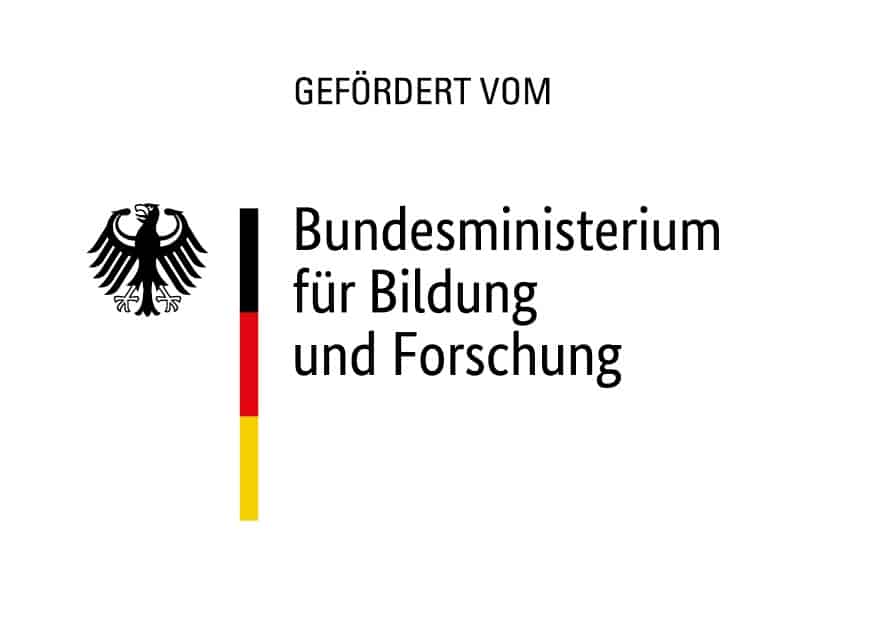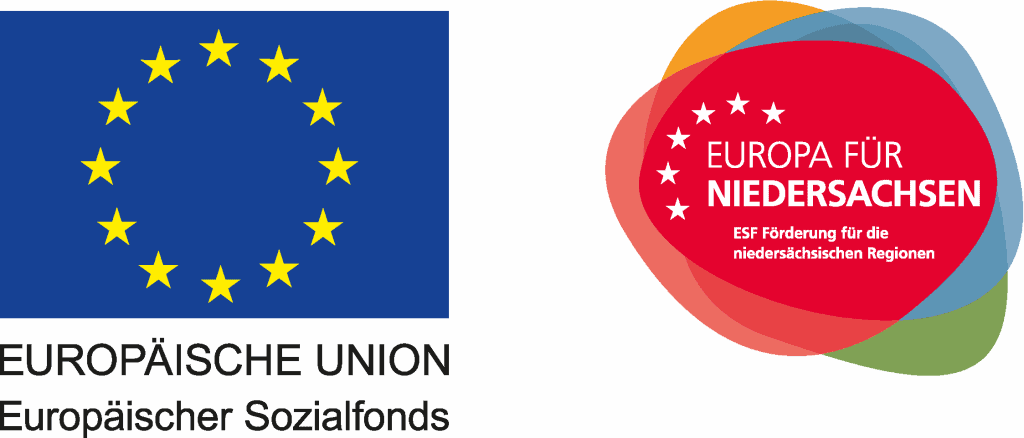Scientific work on projects and issues
The scientists at INOQ GmbH work closely with the Institut für Pflanzenkultur (Institute for Plant Culture) and other national and international research institutions on extensive research projects:
OPT4AMF – Optimizing the production of microbial biostimulants production with innovative additives and mycorrhizal helper bacteria.
KMU innovativ: Bioeconomy, Subproject A funded by the German Federal Ministry of Education and Research, BMBF.
01.03.2023 – 28.02.2026

ARISTO: The European Industry – Academia Network for RevIsing and Advancing the Assessment of the Soil Microbial Toxicity of Pesticides.
This project has received funding from the European Union’s Horizon 2020 research and innovation programme under the Marie Sklodowska-Curie grant agreement No. 956496. 1.12.2020-30.11.2024.

Phytoremediation of mercury-contaminated mining sites in Ghana and Burkina Faso using arbuscular mycorrhizal fungi (Mercury-AMF) – Subproject 2: Development of an AMF plant system for successful phytoremediation
CLIENT II – Joint Project Land Management, BMBF, 01.02.2019 – 30.06.2023

MYRES: Innovative biotechnology using mycorrhizal fungi to restore and remediate damaged soils.
SME Instruments Phase 1. European Union’s Horizon 2020 No. 827344.
2018/19

MASTER: Microbiome Applications for Sustainable food systems through Technologies and EnteRprise
European Union’s Horizon 2020 No. 818368.
2019 – 2023

MIRA: Using insects as vectors for inoculation of beneficial resistance-inducing microbes in plants
This project has received funding from the European Union’s Horizon 2020 research and innovation programme under the Marie Sklodowska-Curie grant agreement
No. 722493.
1.12.2017 – 30.11.2021

 This Project has received funding from the European Union’s H2020 research and innovation programme under the agreement
No. 739739.
01.09.2017 – 31.08.2018
This Project has received funding from the European Union’s H2020 research and innovation programme under the agreement
No. 739739.
01.09.2017 – 31.08.2018 
 Mycosign – Novel plant biostimulants: Joint action of signal molecules & mycorrhiza for sustainable agriculture
Eurostars Projekt, Projektträger DLR, 01.05.2017 – 31.10.2020
Mycosign – Novel plant biostimulants: Joint action of signal molecules & mycorrhiza for sustainable agriculture
Eurostars Projekt, Projektträger DLR, 01.05.2017 – 31.10.2020 
MycoTom: Einsatz arbuskulärer Mykorrhizapilze als Bodenhilfsstoff zur Produktion qualitativ hochwertiger Tomaten im Gewächshaus
KMU-Innovativ 18, Projektträger Jülich, 01.02.2017-31.10.2020

INTERFUTURE: From microbial interactions to new-concept biopesticides and biofertilizers
Marie Skłodowska-Curie Innovative Training Networks, 2016-2020
Boosting plant-Endophyte STability, compatibility and Performance Across ScaleS
BestPass
http://cordis.europa.eu/project/rcn/198332_en.html
EU, 2015-2019
FA 1405: Using three-way interactions between plants, microbes and arthropods to enhance crop protection and production
Vice-Chair: Carolin Schneider
EU, 2015-2019

ARTIE-Projekt “Nachhaltige Produktionssicherung bei Moorbeetpflanzen durch Zugabe von nützlichen Mikroorganismen”
31.12.2013 – 30.4.2015 Mittel des Europäischen Fonds für regionale Entwicklung (EFRE)
Entwicklung des Produktes Echter Glücksklee als lebende Pflanze
1.10.2013 – 30.4.2015 Mittel des Europäischen Fonds für regionale Entwicklung (EFRE)
Deutsche Repräsentantin (Status Delegate) der COST-Aktion „Strigolactones: biological roles and applications“
EU, 2013-2017

ROOTOPOWER Empowering root-targeted strategies to minimize abiotic stress impacts on horticultural crops
EU, 2012-2015
Rekombinantes Glomalin:
Produktion, Isolierung, Charakterisierung und Anwendung als biotechnologischer Wertstoff; Entwicklung des biotechnologischen Wertstoffes Glomalin für die Agrotechnologie und weiße Biotechnologie
ZIM, AiF, 2011-2013

A functional marker of commercial AMF isolates for sustainable agriculture
Marie Curie Actions—Industry-Academia Partnerships and Pathways (IAPP), 2010-2014
Einsatz ericoider Mykorrhizapilze im Gartenbau
ZIM, BMWi, 2010-2013
Verbesserung der Wassernutzungseffizienz von Kulturpflanzen durch den Einsatz von Mykorrhizapilzen
BMBF, 2010-2014
Kompetenznetzwerk WeGa, Produkt- und Produktionssicherheit hochintensiver Pflanzenproduktion
BMBF, 2011-2016
Native Plants and Mycorrhizal Fungi in Wind Erosion Control in the Kailash-Manasarovar Region (Tibet, China)
Veluxstiftung, 2007-2010
Use of biological factors in integrated plant protection against biotic and abiotic stresses
Bundesministerium für Ernährung, Landwirtschaft und Verbraucherschutz, Deutsch-Chinesische Kooperation, 2002-2006
Use of arbuscular mycorrhizal technology in horticultural practice.
German Federal Foundation for the Environment. The use of arbuscular mycorrhizal fungi in horticulture should lead to a reduction in fertiliser and pesticides as well as downtimes in the greenhouse. The savings are presented in a life cycle assessment. The aim is to introduce environmentally friendly plant cultivation.

Use of biological factors in integrated plant protection against biotic and abiotic stresses
Bundesministerium für Ernährung, Landwirtschaft und Verbraucherschutz, Deutsch-Chinesische Kooperation, 2002-2006

EU, Nr. QLRT-1999-00097. Untersucht werden in diesem Projekt die Eigenschaften von Mykorrhizapilzen an belasteten Standorten (Schwermetalle, Salz, PAK) und die Möglichkeit, evtl. Toleranz auf andere Pflanzen auf ebenfalls belasteten Böden zu übertragen.


